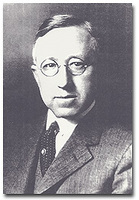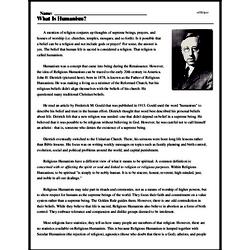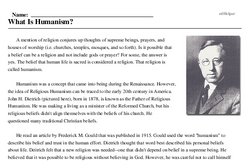What Is Humanism?
A mention of religion conjures up thoughts of supreme beings, prayers, and houses of worship (i.e. churches, temples, mosques, and so forth). Is it possible that a belief can be a religion and not include gods or prayer? For some, the answer is yes. The belief that human life is sacred is considered a religion. That religion is called humanism.
Humanism was a concept that came into being during the Renaissance. However, the idea of Religious Humanism can be traced to the early 20th century in America. John H. Dietrich (pictured here), born in 1878, is known as the Father of Religious Humanism. He was making a living as a minister of the Reformed Church, but his religious beliefs didn't align themselves with the beliefs of his church. He questioned many traditional Christian beliefs.
He read an article by Frederick M. Gould that was published in 1915. Gould used the word "humanism" to describe his belief and trust in the human effort. Dietrich thought that word best described his personal beliefs about life. Deitrich felt that a new religion was needed--one that didn't depend on belief in a supreme being. He believed that it was possible to be religious without believing in God. However, he was careful not to call himself an atheist - that is, someone who denies the existence of a supreme being.




